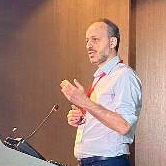Factors Associated with COVID-19 Vaccination Intentions
A special issue of Vaccines (ISSN 2076-393X). This special issue belongs to the section "COVID-19 Vaccines and Vaccination".
Deadline for manuscript submissions: closed (31 May 2023) | Viewed by 36839
Special Issue Editor
Interests: research methodology; evidence-based nursing; clinical epidemiology
Special Issues, Collections and Topics in MDPI journals
Special Issue Information
Dear Colleagues,
Vaccination is one of the most effective methods available to reduce the spread of SARS-CoV-2. Mass vaccination against COVID-19 will help to control the pandemic, and adequate uptake is essential to reach herd immunity. Many countries and regions have mitigated the spread of COVID-19 by prompting and encouraging vaccinations. However, COVID-19 vaccine hesitancy is unfortunately still an issue in some places. Moreover, vaccine fatigue could further diminish individuals’ intention to accept booster doses.
Understanding the factors that affect COVID-19 vaccination intention is crucial to the establishment of broad vaccination programs. Until now, several studies have investigated the relationship between COVID-19 vaccination intention and sociodemographic variables. Therefore, research should now focus on psychosocial factors that could affect vaccination willingness such as COVID-19-related burnout, social support, resilience, peer social capital, social connectedness, optimism, etc. This Special Issue aims to encourage more research studies on psychosocial and sociodemographic factors associated with COVID-19 vaccination intention and prompt the understanding of individuals’ attitudes. Since booster doses seem to be necessary on an annual basis for vulnerable groups, elderly, individuals with chronic conditions, and high-risk groups (e.g., healthcare workers), special attention should be given to the factors that affect individuals’ decision to accept a COVID-19 booster dose. Qualitative and quantitative research should focus on this area to help policy makers to increase vaccination uptake and ultimately achieve herd immunity.
Dr. Petros Galanis
Guest Editor
Manuscript Submission Information
Manuscripts should be submitted online at www.mdpi.com by registering and logging in to this website. Once you are registered, click here to go to the submission form. Manuscripts can be submitted until the deadline. All submissions that pass pre-check are peer-reviewed. Accepted papers will be published continuously in the journal (as soon as accepted) and will be listed together on the special issue website. Research articles, review articles as well as short communications are invited. For planned papers, a title and short abstract (about 100 words) can be sent to the Editorial Office for announcement on this website.
Submitted manuscripts should not have been published previously, nor be under consideration for publication elsewhere (except conference proceedings papers). All manuscripts are thoroughly refereed through a single-blind peer-review process. A guide for authors and other relevant information for submission of manuscripts is available on the Instructions for Authors page. Vaccines is an international peer-reviewed open access monthly journal published by MDPI.
Please visit the Instructions for Authors page before submitting a manuscript. The Article Processing Charge (APC) for publication in this open access journal is 2700 CHF (Swiss Francs). Submitted papers should be well formatted and use good English. Authors may use MDPI's English editing service prior to publication or during author revisions.






